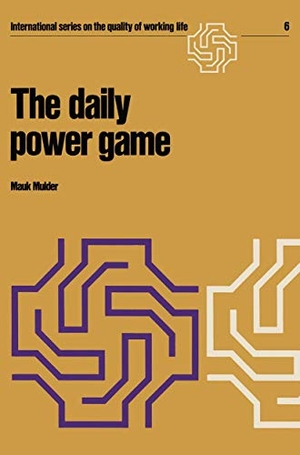Für statistische Zwecke und um bestmögliche Funktionalität zu bieten, speichert diese Website Cookies auf Ihrem Gerät. Das Speichern von Cookies kann in den Browser-Einstellungen deaktiviert werden. Wenn Sie die Website weiter nutzen, stimmen Sie der Verwendung von Cookies zu.
Cookie akzeptieren
M. Mulder
The daily power game
- Springer US
- 2012
- Taschenbuch
- 108 Seiten
- ISBN 9781468469530
Politicians, social scientists, entrepreneurs, trade unionists, church leaders, philosophers, all of us in fact have caused such vast vague ness and confusion about the term 'power' that this can hardly be attributed to mere chance. Apparently, there is so much at stake, whenever we think about power or are involved, that it may be worth our while to keep the concept blurred. This is most clearly seen in social science. Power, inequality in power, struggle for power are a kind of prime movers in social life, but power problems have seldom been studied, compared to the research done on other subjects, such as satisfaction about personal
Mehr
Weniger
zzgl. Versand
in Kürze